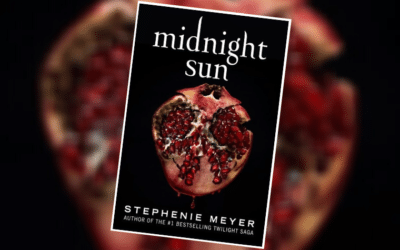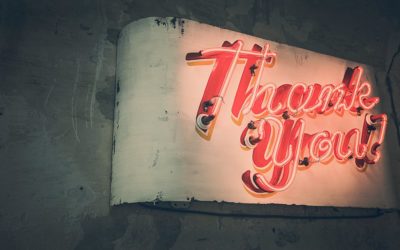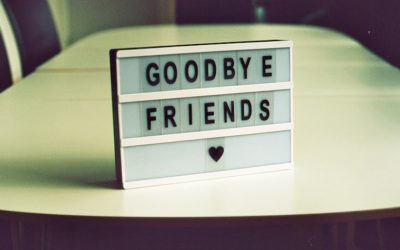Everyone you know that has seen A Quiet Place has told you to go see it. Everyone who has seen it has not stopped talking about it. It’s a near perfect movie, and it’s a horror film. Thanks to the success of Get Out, that statement seems a lot less implausible these days. But in the same way that Get Out was a horror film that took on the very real terrors that face black people in pseudo-woke white society, there’s a real horror in A Quiet Place that goes beyond that claw-clomping, lightning limbed beast made of inner ear.
The Real Horror of A Quiet Place
Very slight spoilers ahead if you haven’t seen A Quiet Place just yet. But … go see it.
This movie does not scrimp on horror motifs. Whatever haunts your nightmares, it has it. Monsters you can’t see? Obviously. Fear of drowning? Yep. Scared of what’s moving in dark water that you can’t see? Sure. Basement phobia. Claustrophobia. Quicksand. Heights. Stepping on nails. Corn fields. Old people. That T-rex vs Jeep scene from Jurassic Park. Labor and delivery without drugs.
And while all of that is truly terrifying and will keep you tense as a drum and hiding behind your fingers for the duration, it’s not what claws at your psyche while watching this movie – and for days afterward.
Emily Blunt’s character sums up the true fear integral in every moment of this movie when she says, “Who are we if we can’t protect them?”
From the very first moment when you see that small pre-schooler running barefoot through an abandoned convenience store, you know it. You’re terrified for this child. Then you realize: the older boy, played so spectacularly by Noah Jupe, is ill, ill in a post-apocalyptic wasteland, and you know it. You’re panic-stricken for this child too. And when it becomes obvious that the lack of sound when we slip into the oldest’s (Millicent Simmonds) point-of-view is the state of her deafness, you know it. You’re horrified that this world will swallow her up.
The real horror of A Quiet Place is the very real terror of parenting.
I remember the first time I felt the visceral pull of a parent desperate to protect their offspring while watching a movie. I was pregnant with my first, and I went to see The Passion of the Christ. Maybe not the best move at four months pregnant, yet the most emotional I found myself in the movie was when Mary, the mother of Jesus, reaches out in slow motion to stop a toddling Messiah from falling down. I gasped and welled up. A movie about the worst physical manifestations of pain a human being can endure, and I cried over a potential scraped knee. Why? Because the idea that we cannot protect our children is the greatest fear a parent can experience.
It’s the impotence.
My oldest daughter got sick this winter. My kids rarely get sick; I can’t remember the last time one of them needed antibiotics for a sinus infection or the stomach bug. But my oldest got stomach pains one weekend that didn’t go away with Gas-X, and ended up in emergency surgery for a hemorrhagic ovarian cyst. But it didn’t end there. The cyst ruptured because she has a platelet deficiency in her blood. Answers have not been forthcoming. We’ve been worried for months about cancer, blood disorders and auto-immune diseases. And there is absolutely nothing I can do to help her. No foods, no treatments, no drugs will make this better for her. For the first time, I am truly powerless to make her ok. And it’s terrifying.
No parent wants to admit when they bring home beautiful, perfect-smelling, sweet-cheeked bundles of wrinkled newborn home that they are completely powerless to protect their child. But we all are. And nothing brings that reality home more than interviews and testimonies of parents from Sandy Hook and Parkland or the tearful pleas of Stephon Clark’s grandmother. In this culture, in this time, we are even powerless to keep them safe from gun violence. This world is terrifying.
A Quiet Place masterfully brings all those feelings to the forefront. Aided by real-life partners and parents, John and Emily, playing capable, smart and loving parents, you feel every tense moment in this movie from that perspective – how your capabilities and knowledge can only take you so far. Sure, Evelyn Abbott knows how to can vegetables, and Lee Abbott knows where to source bag loads of sound-suppressing sand. (Sidenote: they have names in this movie, apparently). But Lee cannot fix his daughter’s hearing aids. Evelyn cannot keep her newborn perfectly quiet.
And it’s the guilt.
In one of the only scenes where the characters exchange spoken dialogue, Evelyn despairs not for the current, inescapable and dangerous situation they and their children are in, but she laments her own choice in the past that led to tragedy. There is no weight greater than the burden a parent can bear for their own mistakes, and her tearful “…and my hands were free …” speaks to the pressing reality of our self-imposed guilt. We take it all, every time. Even when the monsters did the deed.
None of us can know where our children’s lives will lead them, and us. None of us can prepare for everything that they will encounter (although I’m praying that drowning in a corn silo isn’t in their future). And while the unknown and the uncharted leave them open to the magnanimity of life’s possibilities, it also leaves them open to the monstrosity of its pitfalls.
And there’s the horror for you.
Go see A Quiet Place. It will ruin you, AND it will be the best thing you’ve seen all year.





